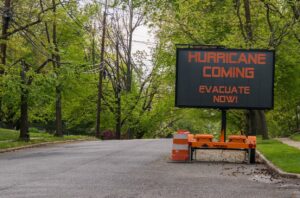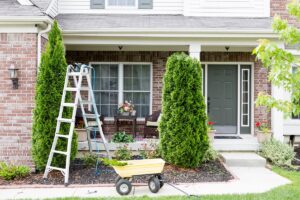Cooking fires are the number one cause of home fires and injuries in the United States. Fire departments respond to an average of 158,400 cooking fires annually, and unsurprisingly, Thanksgiving and Christmas Day are the peak days fire departments get called to home fires.
“On Thanksgiving Day, you’re cooking probably more than you normally do,” says Andrea Vastis, Senior Director of Public Education for the National Fire Protection Association. “You have more going on around you. Sometimes more eyes mean fewer eyes on the cooking.”
Many of these home fires are preventable by knowing the causes of cooking fires and by following the below holiday fire safety tips.
“We say, ‘This Christmas, you want a visit from Santa, not your fire department,” says Andrea.
1. More than a quarter of cooking fires are due to unattended cooking.
These cooking fires occur when a home chef leaves on the stove for braising or frying, or gets distracted. Some home chefs even start cooking, forget they’re cooking, and fall asleep.
“We like to say, ‘Stand by your pan. Keep an eye on what you fry,’” says Andrea. “Whatever you have to do – ban SnapChat from your kitchen cooking, so you’re not constantly doing that.”
2. The range top is where most home fires happen.
“Electric stove tops are more likely to cause fires than gas stove tops,” says Andrea. “It sounds counterintuitive because you think flame must equal fire, but the electric coil range tops can reach 1,000 degrees.”
In fact, range top fires account for 53% of the overall cooking fires, 88% of the deaths, and 74% of the injuries.
This is why one of the most important holiday fire safety tips is to never –
3. Leave kitchen towels or anything flammable near the range top.
Be mindful of oven mitts, wooden utensils, food wrappers, curtains, and anything that’s flammable in your cooking area. That includes your clothes. Home chefs who wear bell sleeves or bathrobes can quickly find themselves in a dangerous and potentially deadly situation.
“We’re talking about burns and clothing that can catch fire,” says Andrea. “Wear short or tight sleeves when you cook.”
4. Cook with an oversized lid next to you.
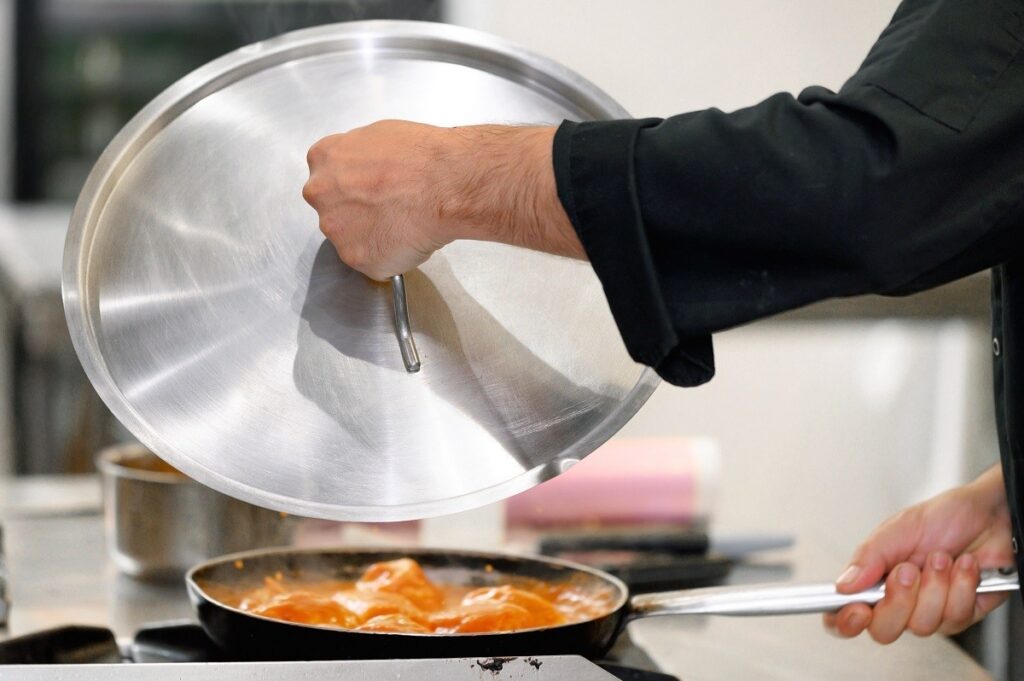
Says Andrea, “If there’s a flare up, quickly slide the lid on it, turn off the ignition, and step away until it dies out.”
Also, have an oven mitt nearby, so you don’t burn your hand as you slide the lid over the flame.
5. Don’t try to fight the fire yourself.
Homeowners panic when a fire ignites, throw their pans in the sink, and do other reckless behaviors. Instead, Andrea stresses that homeowners need to get out, stay out, and call 9-1-1.
“Let the professionals take care of the firefighting.”
6. Clean your area before starting to cook.
You might be thinking, “Can leaving an oven on actually start a fire?”
“If you don’t clean the stove top, there’s a lot of residual grease and oil,” says Andrea. “That can ignite and cause a fire.”
Two-thirds (66%) of home cooking fires start with the ignition of food or other cooking materials, which can happen on the stovetop or in the oven.
Oil, juices, and other materials can fall out of the pan and lay on the bottom of your gas or electric oven. These can ignite, too.
7. Have a game plan.
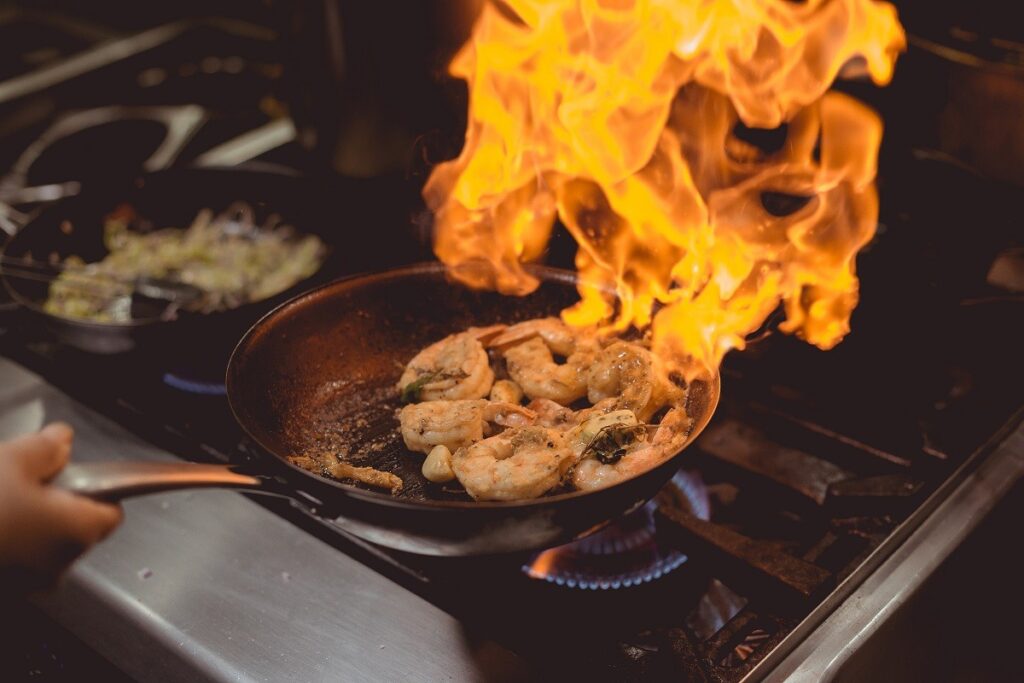
More than one person will usually bring a dish to dinner. One of the best things you can do is designate a place – a counter, a table, etc. – where guests can drop off their Tupperware. This way, people won’t set something on the stove or an area where it can catch fire, and the home chef can be in control of the situation.
Offers Andrea, “If you’re hosting, think of other jobs you can give people, so you can keep them out of your cooking.”
8. Create a “kid-free zone” of at least three feet around your cooking area.
“Pulling things on top of themselves and knocking into things are still sending so many kids to the emergency room and causing major burns,” says Andrea. “This is not a place for kids.”
9. Set a timer.
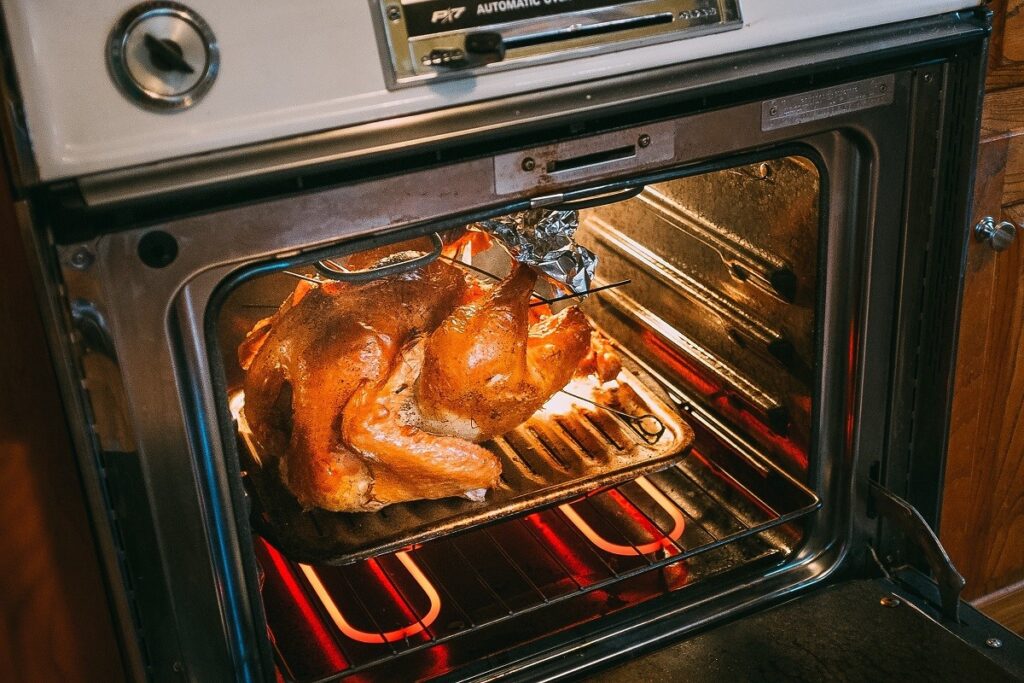
Timers are a great way to keep home chefs attentive. Of course, if you’re grilling, boiling, braising, or frying, stay right there at all times. For longer cooking times, like simmering, baking or roasting food, you should set a timer on your phone or use the one on the oven.
“When it’s going to be two hours, set your timer for every 15 minutes to check on it,” says Andrea. “People get distracted. They fall asleep. So many things can happen.”
10. If you have to step away, turn it off.
Says Andrea, “You think, ‘Oh, I have it here. It’s fine. I’m going to step here to go grab something.’ But inevitably, something distracts you and it takes longer.”
You may return to a fire on the stove. Better to be safe than sorry, so if you ever have to leave it, just turn the oven off.
11. Do not cook under the influence.
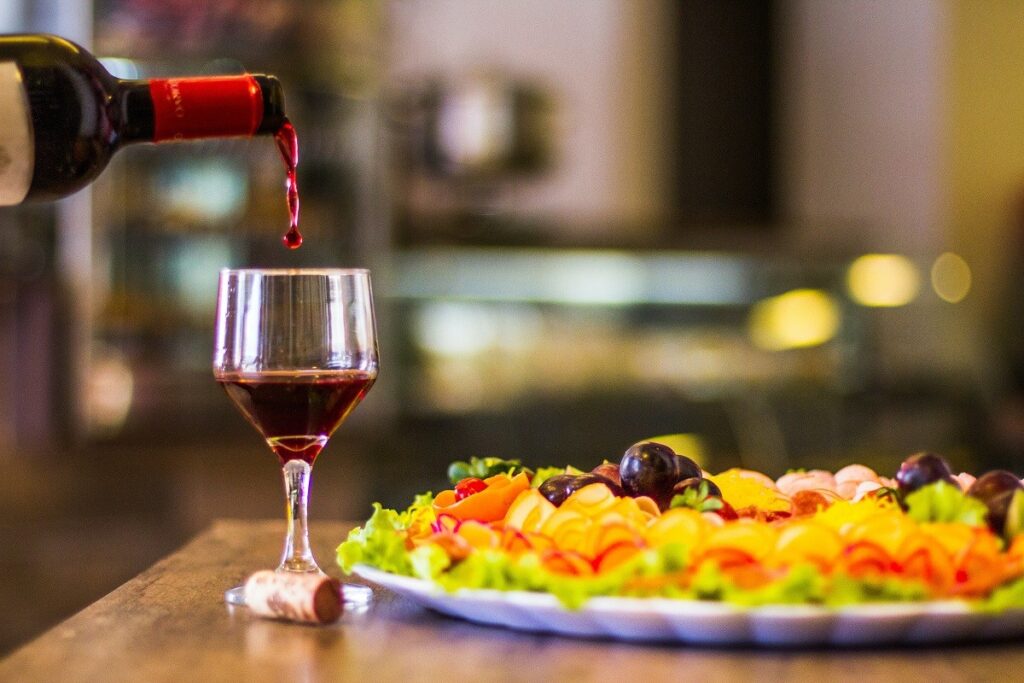
More cooking mishaps happen when you’re paying attention or distracted, and that includes when drinking. Best to leave the alcohol for the feast.
12. Do not cook if you’re not 100%.
13. Be careful with fire extinguishers.
“There are different types of fire extinguishers,” says Andrea. “The most reasonably priced extinguisher is not rated for a grease fire and will actually make a grease fire worse.”
That’s why it’s best to call the fire department for any fires that are bigger than your ability to slide the lid on it and turn it off.
14. Smoke alarms should not be in kitchens or bathrooms.
“The heat from the kitchen and the bathroom will set them off. Then you’re going to take the battery out, and now you’ll be left unprotected.”
15. But you should never cook without working smoke alarms.
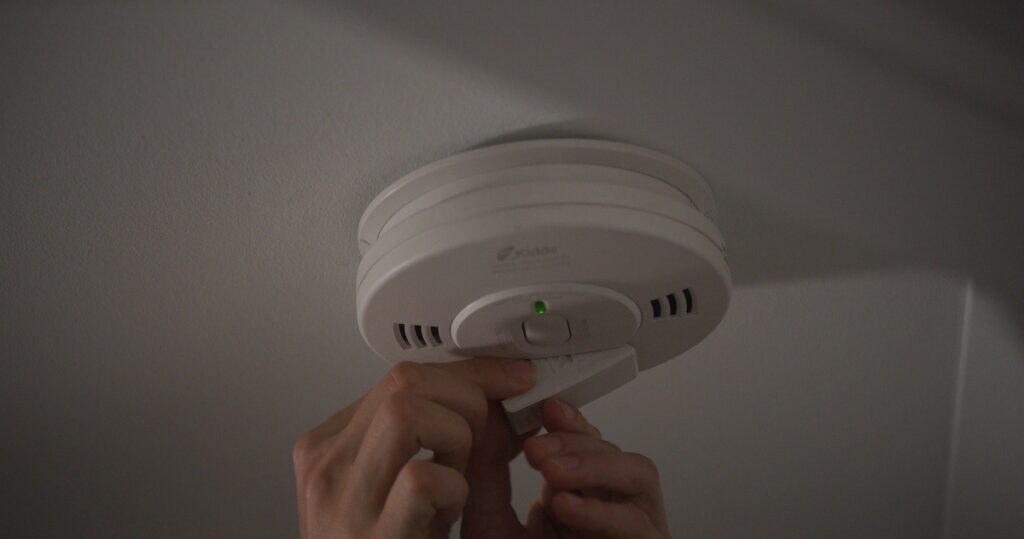
You should absolutely have working smoke alarms in your home as they can mean the difference between life and death.
“People are twice as likely to die in a fire without a working smoke alarm,” says Andrea.
The best protection is interconnected alarms that are installed by a licensed electrician. This way, if a fire breaks out on one side of the home, you’ll be alerted quickly on your side of the house. However, if you don’t have interconnected smoke alarms, then you need to ensure your smoke alarms have batteries in them and they work.
Says Andrea, “Like you need your space suit to breathe on the moon, you need your smoke alarm to be safe in your house.”
Test your smoke alarms at least once a month, perhaps on “Smoke Alarm Saturday,” or the first Saturday of the month, as Andrea suggests. Learn more about smoke alarms and where they should be in Fire Safety Tips That Can Save Your Life.
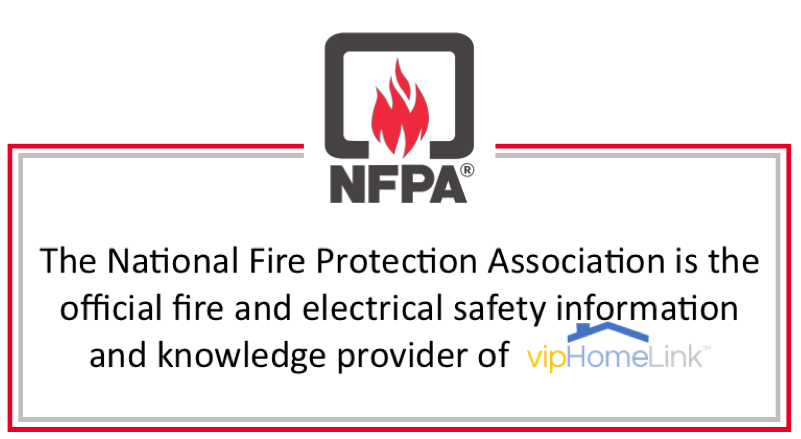
Stay safe all year long!
Homeownership can be hard, but it doesn’t have to be. The vipHome.app can help. In less than four minutes, enjoy a new way to manage your home. Simply download the app, register your home, and enjoy a simplified homeownership experience. Download today!

